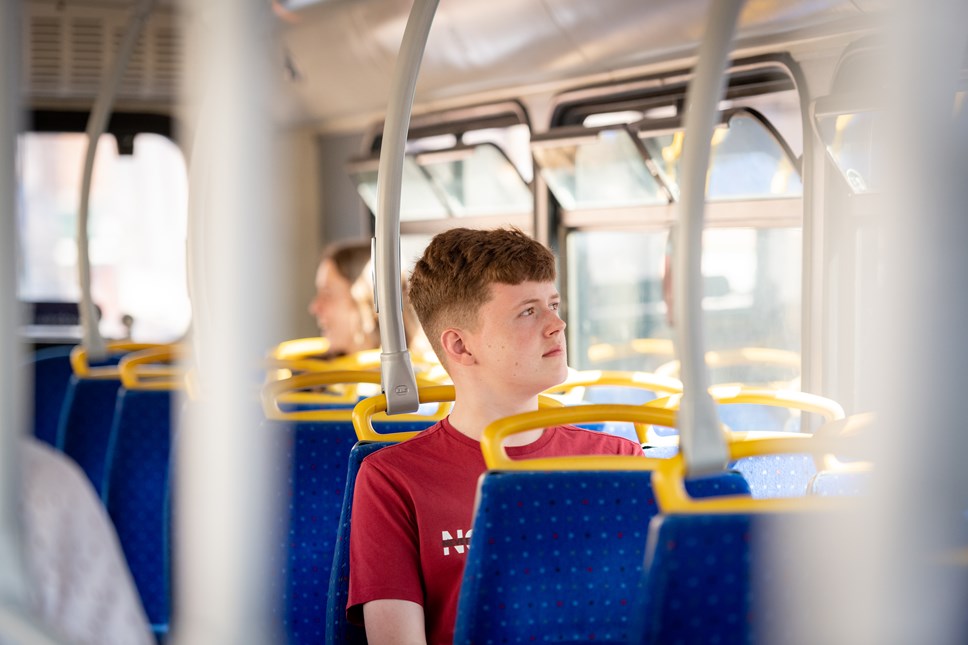
Go-Ahead adds life-saving defibrillators to Plymouth bus fleet
- UK-first pilot scheme sees defibrillators fitted to Plymouth commuter services
- Ground-breaking partnership with Hearts Together will train drivers and provide instructions for passengers
- Defibrillators raise cardiac arrest survival rates from 6% to 74%
The Go-Ahead Group has become the first British bus operator to add defibrillators to its bus fleet in a groundbreaking new charity partnership.
As part of an initial pilot, sixteen defibrillators will be fitted onboard Plymouth Citybus services in partnership with Hearts Together, a heart disease charity operating across the South West.
These kits will be featured on one of the busiest routes in the city, travelling from the commuter belt in to the heart of Plymouth.
Drivers will be trained in how to use the defibrillators, with instructions also on board for passengers, converting each bus into a travelling lifesaver for the people of Plymouth. The defibrillator training was recently put into practice by two quick-thinking Citybus employees on a pedestrian who had collapsed in the city centre. They performed CPR on the pedestrian and waited with him until the emergency services arrived.
Defibrillators can be used to restart the heart in case of cardiac arrest and can raise survival rates from 6% to an incredible 74%.
This is the first scheme in the UK to place defibrillators on buses, and was officially launched in Plymouth on Wednesday 16th October - World Restart a Heart Day.
Go-Ahead group customer director Katy Taylor said: “In times of crisis our buses are often close to the scene, so it makes sense for them to be equipped with defibrillators. Even last week one of the defibrillators helped save someone’s life.
“Members of the public will be able to use them and we are also training all our drivers in the hope that should someone suffer a cardiac arrest near or on our buses, everything can be done to significantly improve their chances of survival.
“We hope this project will make a genuine difference not just to the health of our passengers but for the communities we serve. This is another way that buses can improve the health and well-being of our communities as they help combat social isolation and connect communities.”
Each of the buses will have signs to advise passengers that a defibrillator is aboard their bu. Clearly labelled QR codes will allow members of the public to scan and play a video showing how to use them.
Hearts Together Chief Executive Liz Harding said: “Defibrillators make a tangible difference to communities - tragically 90-95% of cardiac arrests prove fatal when they go untreated, yet the likelihood of survival is altered dramatically by their use.
“Every minute without CPR or defibrillation, the chances of someone surviving a cardiac arrest reduces by seven to 10% - it’s that important.
“Buses are central to everyday life and it makes perfect sense for defibrillators to be fitted to them - it means one is never far away from those in need.”
Hearts Together provides accommodation for patients, carers, relatives and healthcare professionals as well as essential lifesaving equipment to local hospitals and communities in the South West. The Plymouth-based charity also offers support and counselling to anyone affected by heart disease.
For more information, visit heartstogether.org.uk
